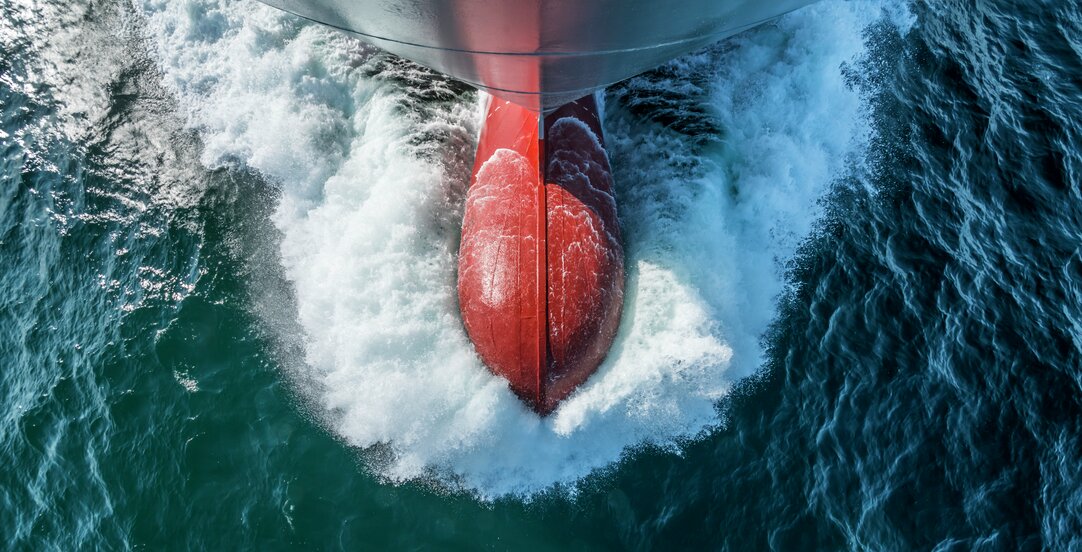Charter payments and sanctions – an update from the Commercial Court

In a summary judgment relating to a dispute arising out of the charterers’ failure to make hire payments under bareboat charterparties, the Commercial Court provides guidance on the impact of sanctions on the parties’ obligations to make payment.
Lesetid 5 minutter
The dispute arose out of two 2019 bareboat charterparties (Charters) made between (i) Gravelor Shipping Limited as charterers (“Charterers”) and (ii) GTLK Asia M5 and GTLK Asia M6 as owners (“Owners”) in respect of the bulk carriers MV “WL TOTMA” and MV “WL KIRILLOV” (“Vessels”). The Owners’ parent company, JSC State Transportation Leasing Company (“Owners’ Parent”), was owned and/or controlled by the Russian Ministry of Transportation.
The Charters in question were financial leases for financing the acquisition of the Vessels and accordingly, provided that the Charterers should take title to the Vessel(s) upon expiry of the relevant Charters. Provided there was no default on the part of the Charterers, title transfer could be by way of (i) an early purchase option in favour of the Charterers, or (ii) a purchase obligation on the Charterers at the end of the charter period. However, the Charters also provided under clause 18.3 that if there was a Charterers’ default, the Charterers would pay, on demand to the Owners, a termination amount together with unpaid hire and other amounts due, and that upon such payment the Owners would transfer title to the Vessels to the Charterers. The Charters set out the mechanisms for calculating the purchase price (or termination amount as applicable) depending on the circumstances in which the relevant Charter came to an end.
The Charters contained the usual default provision for the Charterers’ failure to pay hire and certain provisions dealing with sanctions and sanctions payment restrictions.
Imposition of Sanctions
In early March 2022, the Charterers exercised their purchase options under the Charters. However, as a result of the Owners’ Parent and its associates having been added to the EU sanctions regime in April 2022 following Russia’s invasion of Ukraine in February 2022, the Charterers were unable to pay hire and other amounts due and owing to the Owners.
The Owners subsequently terminated the Charters citing the Charterers’ default for non-payment of hire, and nominated a Moscow bank account for payment of the relevant termination amounts by the Charterers. The Charterers were however prevented from paying the relevant termination sums to the nominated account in Moscow due to the impact of the applicable EU sanctions.
The Owners’ Parent and its subsidiaries were further designated in August 2022 by the US State Department as “blocked” under Executive Order 14024 with the effect that payments in the contractual currency i.e. US dollars became impossible.
As a result of the resulting impasse, the Charterers issued proceedings and applied for summary judgement on, inter alia, a claim for specific performance of the purchase options. The Charterers’ asserted the provisions of clause 8.10 of the Charters which provided that where a payment under the Charters is “incapable of being processed by the relevant banking institution and has not been received by the Owner on the due date by virtue of the Owner becoming a Sanctions Target, the Owner and the Charterer shall cooperate and promptly take all necessary steps in order for the payment to be resumed. Any delay in payments [resulting from such circumstances] shall not be deemed an Event of Default”.
The commercial court's decision
The Commercial Court considered, inter alia, the following key issues:
Key issues
- What would constitute payment of the termination amounts to the Owners in light of the applicable sanctions preventing payment to the Owners’ nominated account?
- If the Owners had an obligation to transfer title to the Vessels from the above, would the Commercial Court order specific performance?
Payment
Ordinarily the Charterers would only be entitled to acquire title to the Vessels under clause 18.3 upon payment of the required termination amounts in USD into the Moscow bank account nominated by the Owners. In light of the sanctions imposed on the Owners however, the Charterers could not do so.
The Court considered various arguments stemming from clause 8.10 and determined that:
- Relying on Mur Shipping BV v. RTI Ltd [2022] EWCA Civ 1406, the Owners were required to nominate an alternative bank account (other than the Moscow account nominated by them) and to accept payment in Euros instead of USD (despite USD being the currency for payment stipulated under the terms of the Charters).
- Justice Foxton stated that “While the facts are different, MUR Shipping does, however, demonstrate that clauses in contracts which are intended to address extraneous circumstances which render performance in the manner originally anticipated impossible, while keeping the relevant obligations alive as a matter of substance, or in “a … practical sense”, may well involve one party accepting performance otherwise than “in strict accordance with its terms”.”
- The words “all necessary steps” in clause 8.10, as a matter of construction, extend to the Owners being required to nominate an alternative bank account where the required payment could be made, even if the Owners would be restricted in their ability to access those funds following such payment.
- The fact that the transfer of funds was made into a bank account from which the Owners would have great difficulty withdrawing them did not of itself mean that payment had not taken place for the purposes of the Charters. The Owners’ inability to access the funds would arise from their being designated as a sanctions target, rather than anything to do with the contractual payment process itself.
Specific performance
The Court considered that damages would not be an adequate remedy in this case, particularly taking into account the incapability of the Owners to make good on any such award in the light of sanctions, and ordered specific performance of the Owners’ obligation to transfer title to the Vessels. This order was subject to the Charterers being able to satisfy their obligation under clause 19.3 to provide evidence of there being no material risk of any clawback of payments made by them.
Comment
The Commercial Court’s decision (and the decision in Mur Shipping) clearly indicates that, against the background of international sanctions, English courts are inclined to prioritise contractual performance where it is possible to do so without breaching relevant sanctions, even if it is in a manner which is not strictly in accordance with the terms of the contract.
In the ever-evolving domain of international sanctions it is therefore increasingly important for parties to carefully assess the sanctions provisions in their contracts, the potential impact of international sanctions on their obligations and to the extent possible address such risks under comprehensive sanctions clauses.
Should the obligations (particularly payment obligations) of a party to a contract become subject to any applicable sanctions, it is vital to carefully consider the steps one would take in the light of the international sanctions regime, the contractual terms and the possibility of performance.
